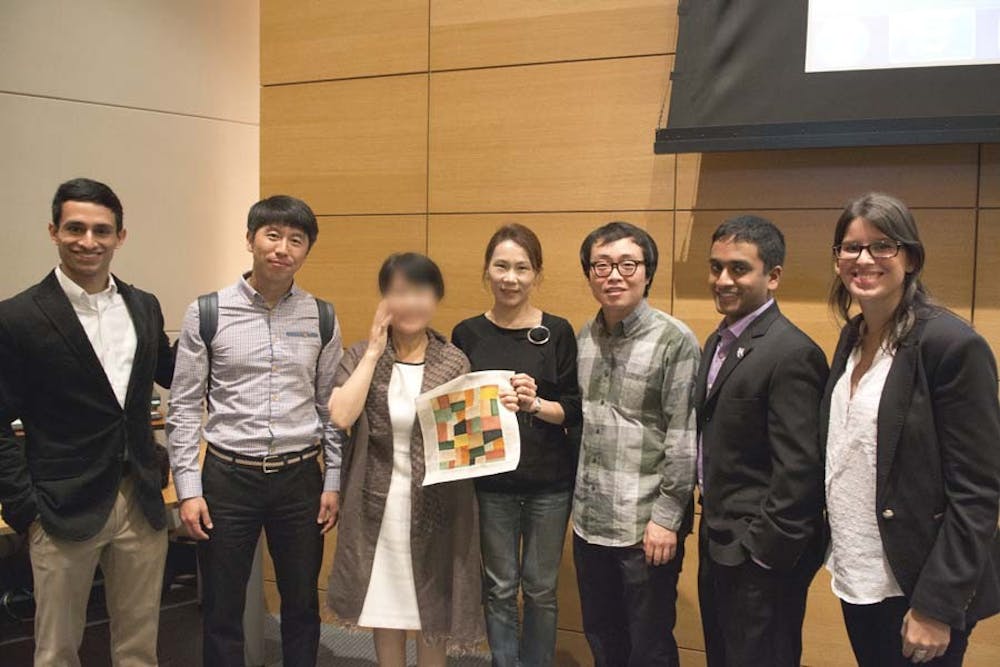
Hirsh Shah (far right), Sunghyun Hong, North Korean Defector Azalea Kim, Translator and Jokakbo liaison Yungwon Choi, Won Lee, Yadavan Mahendraraj, and Bianca Faccio at the event.
“I thought I would be nervous, but I’m not,” journalist Azalea Kim said last night, speaking to about 300 students gathered in Huntsman Hall. “In North Korea, they taught me that America is the country of hyenas […] but you are not. You are good, happy people.”
Kim — who goes by a pseudonym to protect her family still in the country — is a defector from North Korea’s communist regime. She came to speak last night at the invitation of Penn’s International Affairs Association. She currently lives in South Korea, and was brought to speak in the United States for the first time with the help of Jogakbo — a nonprofit dedicated to fostering understanding between North and South Korean women.
The event had been in the works between Jogakbo and the IAA since the 16th, a relatively short time frame to pull together an event of this kind. When the IAA was planning its speaking events for the year, it approached a representative of Jogakbo who affirmed that Kim could come to speak at Penn, but only on the 26th.
Related: Korean students reflect on tension between North and South
According to College senior and IAA Director of Academic Affairs Bianca Faccio, working with an organization like Jogakbo — which focuses on women’s rights and issues in North Korea as well as peaceful reunification of both Koreas — was important to hosting an event with humanitarian, rather than political, undertones.
“[This is] something that you read about,” Faccio said, “but you never get to put a human face to the news.”
Pictures, videos and other recordings were prohibited at the event to preserve Kim’s anonymity.
Related: North Korea defector describes brutality
With the help of an interpreter, Kim spoke at length about her life in the North. She described growing up in a low-class family without enough food to eat and how her father beat her mother for mismanaging the household ration when the family went hungry. When her mother died at the age of 52, Kim resolved to live a better life.
In 1994, following the death of the late North Korean president Kim Il Sung, Kim found her opportunity. For several years, the country was devastated by famine and disease, during which time Kim built herself a successful business selling medicines on the black market.
At one point, she was arrested for her business activities and interrogated by a government official for three months before being released. Shortly thereafter, she began searching for a way to escape the country after she watched another businessman’s execution for black market dealings.
At the close of her lecture, Kim expressed hope for the Korea’s future. “Reunification is not something hard,” she said. “[We must] open our hearts and learn from others’ differences. It is already beginning.”
The Daily Pennsylvanian is an independent, student-run newspaper. Please consider making a donation to support the coverage that shapes the University. Your generosity ensures a future of strong journalism at Penn.
DonatePlease note All comments are eligible for publication in The Daily Pennsylvanian.




